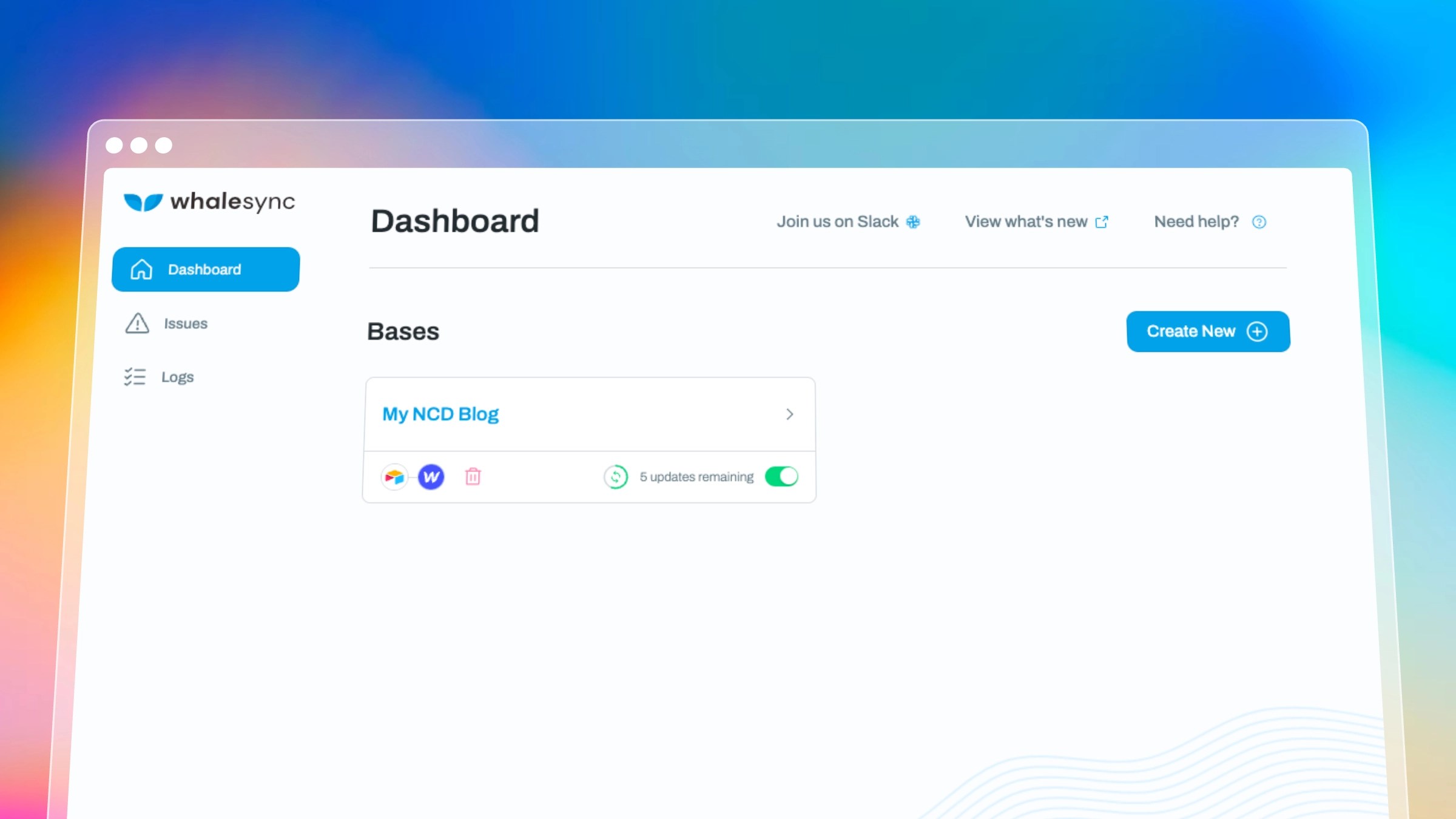There’s no doubt that no-code tools are transforming the way apps are made — particularly in the corporate world, where there’s often a premium placed on tech that can cut costs. According to recent Gartner surveys, 70% of new business apps will use low-code/no-code technologies by 2025, and by 2024, 80% of non-IT professionals will develop IT products and services — with over 65% of them using low-code/no-code tools.
No-code is a lucrative market, then — and one chock-full of vendors. But Whalesync is doing its darndest to stand out from the crowd with a tool that bi-directionally transfers data across popular SaaS apps, including Airtable, Webflow and Notion.
Whalesync was co-founded roughly a year ago by Curtis Fonger and Matthew Busel. Fonger, Whalesync’s CEO, began his career at Microsoft working on OneDrive file syncing and sold his first startup, no-code website builder Appetas, to Google in 2014. Busel is a former product manager at MakeSpace and a sometime no-code consultant.
Fonger and Busel met in the spring of 2021 on Y Combinator’s co-founder matching platform. They originally planned to build a no-code app builder, but after working closely with operators, they discovered a bigger opportunity: data syncing.
“Users were painfully stitching together data across their SaaS apps and trying to solve the problem with automation tools,” Fonger told TechCrunch in an email interview. “Drawing on my experience at OneDrive, we realized teams could unlock new use cases by syncing their apps rather than building one-way data pipelines.”
Whalesync certainly isn’t the first platform to sync data between SaaS apps — far from it. The market for enterprise file sync and share tools could be worth $12.84 billion by 2026, according to Technavio.
Recent no-code, data-syncing tools on the scene include PieSync, which connects a plethora of cloud apps and syncs contacts stored in those apps two-way. There’s also Airbyte-owned Grouparoo, an open source platform that syncs data between databases and cloud-based tools.
Techcrunch eventJoin 10k+ tech and VC leaders for growth and connections at Disrupt 2025
Netflix, Box, a16z, ElevenLabs, Wayve, Sequoia Capital, Elad Gil — just some of the 250+ heavy hitters leading 200+ sessions designed to deliver the insights that fuel startup growth and sharpen your edge. Don’t miss the 20th anniversary of TechCrunch, and a chance to learn from the top voices in tech. Grab your ticket before Sept 26 to save up to $668.
Join 10k+ tech and VC leaders for growth and connections at Disrupt 2025
Netflix, Box, a16z, ElevenLabs, Wayve, Sequoia Capital, Elad Gil — just some of the 250+ heavy hitters leading 200+ sessions designed to deliver the insights that fuel startup growth and sharpen your edge. Don’t miss the 20th anniversary of TechCrunch, and a chance to learn from the top voices in tech. Grab your ticket before Sept 26 to save up to $668.
San Francisco | October 27-29, 2025 REGISTER NOW
Whalesync’s differentiator, according to Fonger, is a spreadsheet from which businesses can automatically sync their data across SaaS apps and manage it. Users can set up internal tools with Notion and Postgres or build no-code apps with Bubble, for example.
“Whalesync is different from traditional data pipelines or automation tools,” Fonger explained. “We’re conceptually closer to Dropbox, except instead of syncing files across computers we’re syncing data between SaaS applications. All you have to do is tell Whalesync how to match up tables and fields between SaaS apps and we handle the rest.”
In order to enable bi-directional sync, Whalesync stores the data that it keeps in sync, Fonger says. Users can choose to delete that data if they delete their sync configurations or close their account.
Perhaps thanks in part to the tool’s simplicity, Whalesync managed to gain traction relatively early after its February 2021 launch, signing up hundreds of customers and growing recurring revenue at an average rate of 38% per month. The company recently closed an $1.8 million pre-seed round led by Y Combinator with participation from Liquid 2, Soma Capital and Ascend, signaling at least someinvestor confidence in its approach.
By the end of 2023, Whalesync plans to add another four to five team members to its six-person team.
“Over the past several years we’ve seen the rise of the modern data stack. Large enterprises use extract, transform and load (ETL) and reverse-ETL pipelines to move data in and out of data warehouses,” Fonger said. “We’ve learned from these best practices and created novel technology to simplify the setup process and bring the power of data syncing to small- and medium-sized businesses, who are currently using automation tools to send data between applications.”

